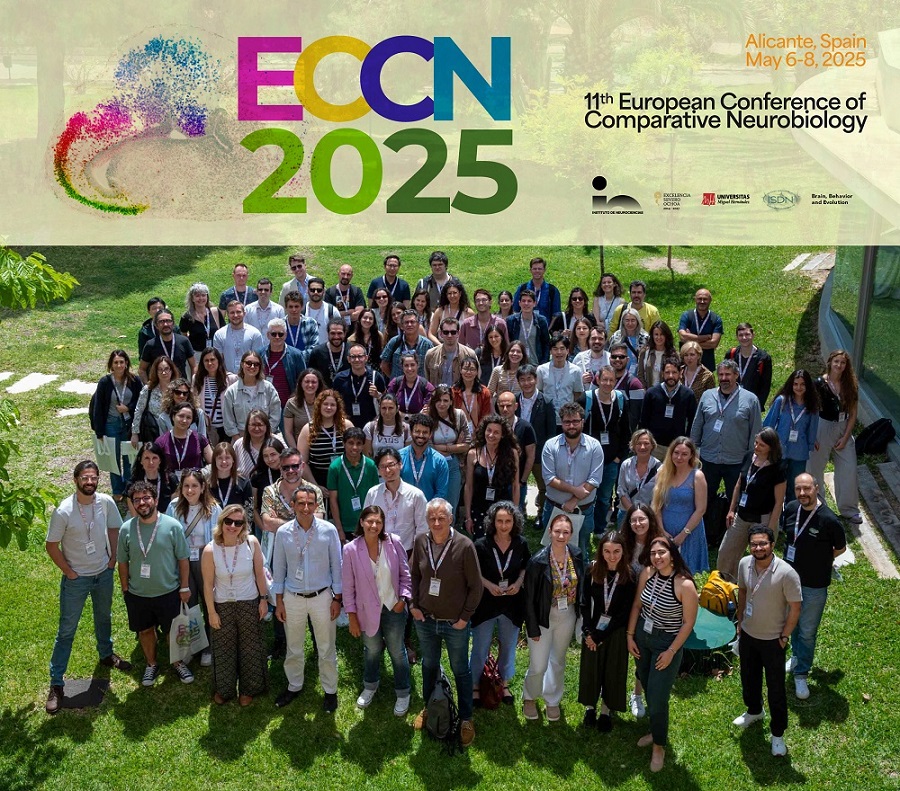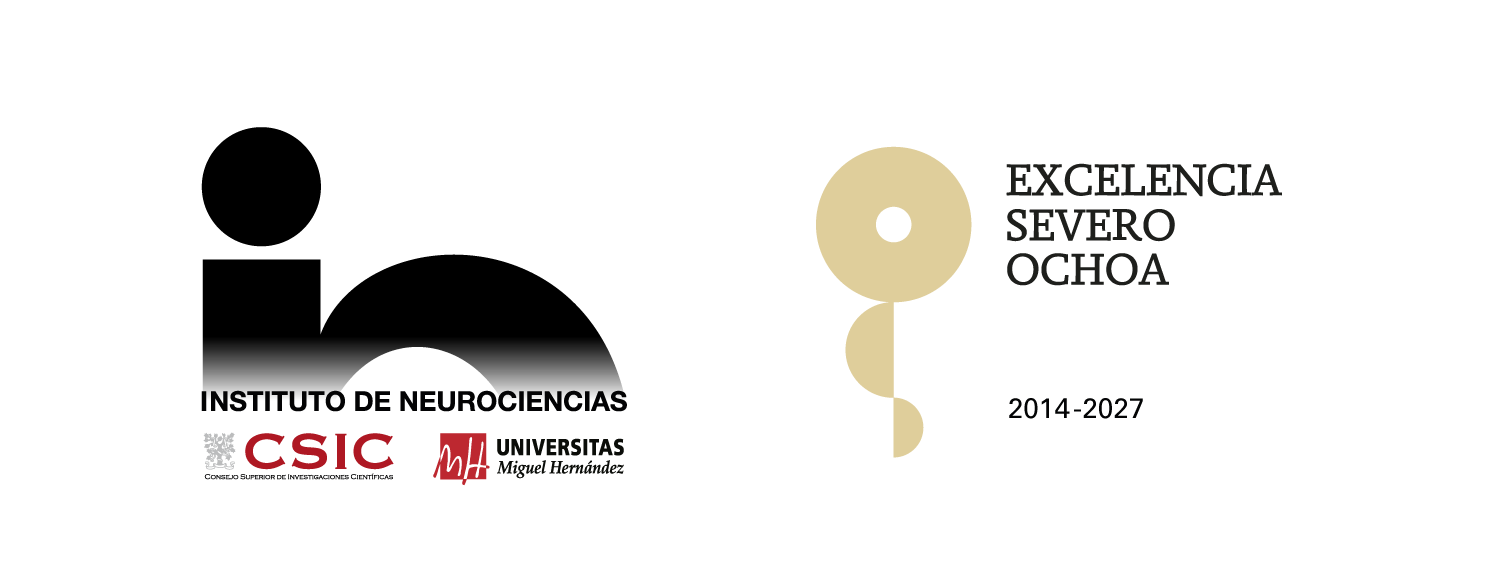Over 100 experts gather in Alicante for the 11th European Conference of Comparative Neurobiology
9 de May de 2025
From May 6 to 8, 2025, the San Juan Complex in Sant Joan d’Alacant hosted the 11th European Conference on Comparative Neurobiology (ECCN2025). This internationally renowned event brought together more than 100 specialists worldwide to discuss the latest advances in the study of the nervous system from an evolutionary and comparative perspective. Held every three years, this conference serves as a key meeting point for researchers exploring how brains develop, organize, and diversify throughout animal evolution.
The ECCN2025 program included more than 60 oral presentations organized into thematic sessions covering topics such as neural development, the evolution of sensory and motor circuits, the functional organization of the nervous system, neurogenesis, and comparative transcriptomics. Several poster sessions and networking events were also held to foster interdisciplinary collaboration and the exchange of ideas across generations of scientists.

Participants at the 11th European Conference on Comparative Neurobiology (ECCN2025) in Sant Joan d’Alacant. Source: IN CSIC-UMH.
The event featured strong participation from researchers at the Instituto de Neurociencias (IN), a joint center of the Spanish National Research Council (CSIC) and the Miguel Hernández University (UMH) of Elche. The conference was opened by Víctor Borrell, local organizer and head of the Neurogenesis and Cortical Expansion Lab at IN. In his keynote, he discussed how different evolutionary lineages have developed both convergent and divergent mechanisms for forming the cerebral cortex.
Also presenting was researcher Eduardo Leyva, head of the emerging research line Molecular Mechanisms of Neuronal Identity, who explained how certain key regulatory genes can define and reconfigure neuron identity during development and in regenerative contexts. Eloísa Herrera, director of the Generation and Regeneration of Bilateral Neural Circuits Lab, gave a talk exploring the molecular and cellular processes that enable the formation of binocular visual circuits during embryonic development.
Borrell emphasized that the event represents “a unique opportunity to bring together the international scientific community studying how the nervous system develops and evolves across different species”. He added: “It not only allows for the sharing of cutting-edge advances, but also integrates comparative perspectives that span from invertebrates to mammals, including less commonly studied species such as cephalopods, fish, or birds. The diversity of models is essential to understanding which aspects of the brain are universal and which are the result of specific evolutionary adaptations”.
At the end of the conference, the award for Best Poster was presented to Giacomo Gattoni, researcher at the University of Cambridge (UK). The awards for Best Flash Talk were given to Rodrigo Suárez, researcher at the University of Queensland (Australia); Kristina Kverkova, researcher at Charles University in Prague (Czech Republic); and Tetsuya Yamada, researcher at the Institute of Global Innovation Research (Japan).
In addition to Víctor Borrell, the ECCN2025 organizing committee included an international team of renowned experts: Katja Heuer, specialist in neuroimaging and brain cartography at the Pasteur Institute (France); Zoltán Molnár, leading figure in cortical development neurobiology at the University of Oxford (UK); Nerea Moreno, researcher in comparative neuroanatomy and brain evolution at the Complutense University of Madrid (Spain); and Fernando García-Moreno, researcher at the Achucarro Basque Center for Neuroscience (Spain), whose work focuses on the evolutionary origins of cortical circuits.
This event was made possible thanks to the support of the Severo Ochoa Program for Centers of Excellence at the Institute for Neurosciences CSIC-UMH, the journal Brain, Behavior and Evolution, and the International Society for Developmental Neuroscience (ISDN).
Institute for Neurosciences : https://eccn2025.umh.es/
Source: Institute for Neurosciences CSIC-UMH (in.comunicacion@umh.es)

 Español
Español